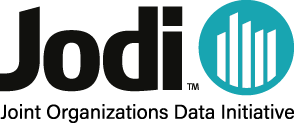JODI Historical Background
Back in the late 1990s, Energy Ministers identified the lack of transparent and reliable oil statistics as a key contributor to oil price volatility. Producers and consumers alike stepped up efforts to improve the availability and reliability of oil data, and Ministers at the 7th International Energy Forum in Riyadh urged a global response to the challenge of greater transparency.
Six international organizations - APEC, Eurostat, IEA, OLADE, OPEC and the UNSD 1 - took up the challenge, combined their efforts, involved their Member Countries and in April 2001 launched the Joint Oil Data Exercise. The primary goal was not to build a database, but to raise awareness among oil market players about the need for more transparency in oil market data. The first priority of the six organizations was to assess the oil data situation in their respective member countries. The assessment included the collection of monthly oil statistics from each organization's member countries through a harmonised questionnaire on 42 key oil data points.
Progress was immediate: within six months, 55 countries were participating in the exercise. Six months later, there were over 70 participating countries, representing 90% of global oil supply and demand.
At the 8th International Energy Forum in Osaka in 2002, Ministers reaffirmed their political support, and with that mandate the six organizations obtained agreement from their Member Countries to make the Exercise a permanent reporting mechanism. The Joint Oil Data Initiative was born.
As the process gained momentum, the quality, timeliness and completeness of submissions improved. As the scale of the Initiative and global interest in it continued to grow, it was clear that the information had to be made available in a compatible form: The JODI-Oil World Database was created. Participants in the 5th JODI Conference in October 2004 then strongly recommended that this joint global database should be made freely accessible to all - organizations, countries, industry, analysts and journalists.
The IEF Secretariat, which took over the co-ordination of JODI in January 2005, and its partner organizations are fully aware of the limitations of the database, but already for many countries – especially for the top 30 producers and consumers – timeliness, coverage and reliability are at reasonable levels.
The challenge for the organizations now is to increase the coverage to other countries, to reduce the delay in data submissions and to further enhance the data quality.
JODI: From Oil to Gas
In 2008, at the 11th International Energy Forum (IEF) Ministerial and at the Jeddah and London Energy Meetings, Ministers called for greater energy data transparency, including the extension of the JODI platform to cover natural gas. The following year, the JODI Partners launched the JODI-Gas exercise, collecting production, demand, trade and storage data.
In the years that followed, support for JODI-Gas was regularly voiced at meetings of the G8, G20, and other Ministerial bodies - including the 13th IEF in Kuwait, where Ministers reaffirmed their support for the launch of JODI-Gas.
Just two months later, the JODI Partners organized the Second Gas Data Transparency Conference in Doha, where they agreed to seek support in converting JODI-Gas from an exercise into a permanent initiative. In October 2012, it was official: JODI-Gas became a permanent initiative. By the following month, 52 countries were participating in JODI-Gas, representing around two thirds of global supply and demand.
In January 2013, a beta version of JODI-Gas was made available to all countries submitting gas data, to gather feedback and promote participation. Just three months later, the number of participating countries had risen to 69, representing around 80% of global supply and demand of gas.
In June 2013, the JODI Partners organized the 3rd Gas Data Transparency Conference in Indonesia, which convened representatives from national administrations and industry to discuss and define a checklist of final steps prior to the public launch of the initiative.
One of the agreed upon pre-conditions to the public launch was the completion of the JODI-Gas Manual, which was published in February 2014.
Another pre-condition to launch was the organization of training workshops on JODI-Gas for statisticians from participating countries. The IEF and JODI Partners organized not one but two such workshops, in Kuala Lumpur and Baku.
A third pre-condition to launch was the inclusion of data from more producing and consuming countries. In April 2014 the Gas Exporting Countries Forum came on board as a JODI Partner, bringing the number of countries and economies participating in JODI-Gas to 77 countries - representing nearly 90% of the global natural gas supply and demand.
In May 2014, six years after Ministers made the call, the JODI-Gas World Database was opened to the public.
JODI-Gas is the result of years of hard work by hundreds of people around the globe who, by cooperating every single month, have endeavoured to enhance global natural gas data transparency for the benefit of all market actors.
JODI-Gas is a commendable achievement, but it remains a work in progress. It relies on an unwavering and sustained commitment to transparency: from Leaders and Ministers, as well as from national statisticians, and of course the JODI Partners themselves.
JODI-Gas Launch Video
1 The full names of the JODI-Oil partner organizations are: Asia Pacific Economic Cooperation (APEC), Statistical Office of the European Communities (Eurostat), Gas Exporting Countries Forum (GECF), International Energy Agency (IEA), International Energy Forum (IEF), Latin American Energy Organization (OLADE), Organization of the Petroleum Exporting Countries (OPEC), United Nations Statistics Division (UNSD).



